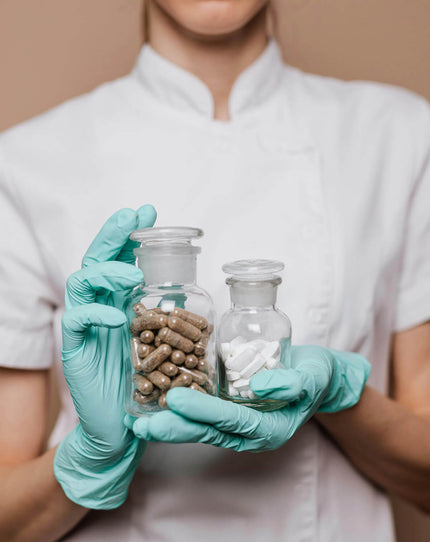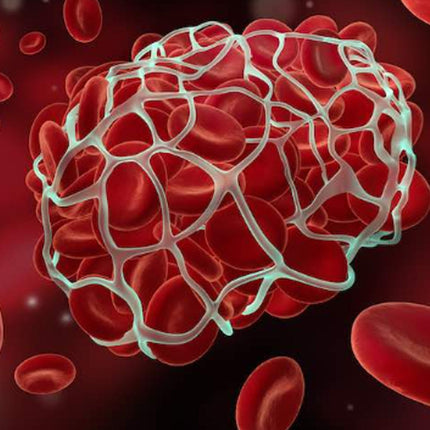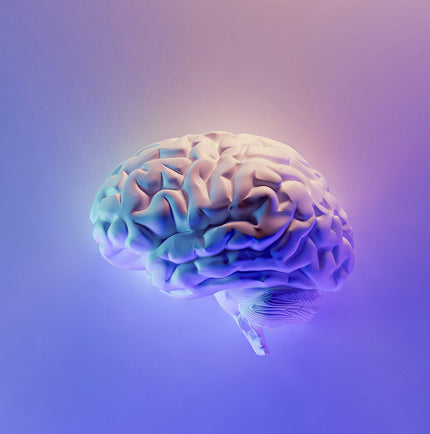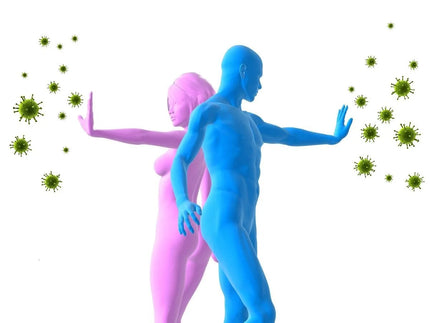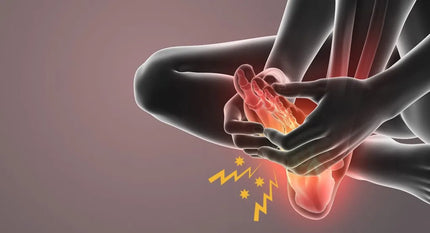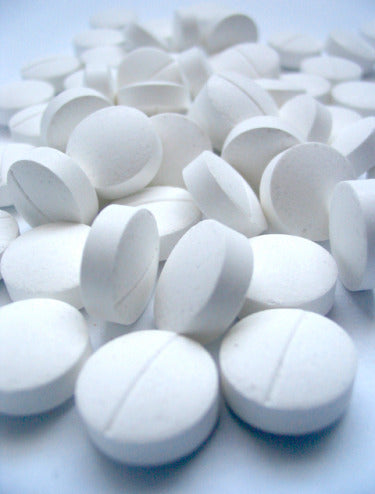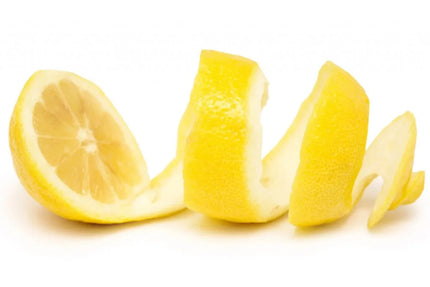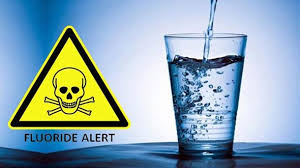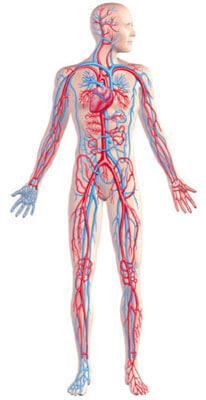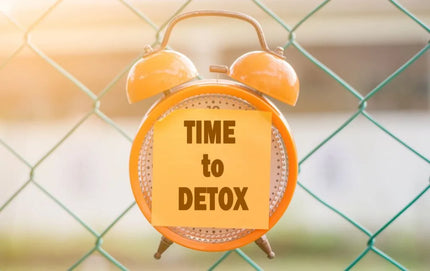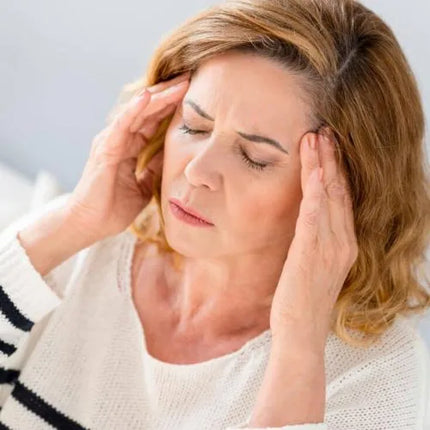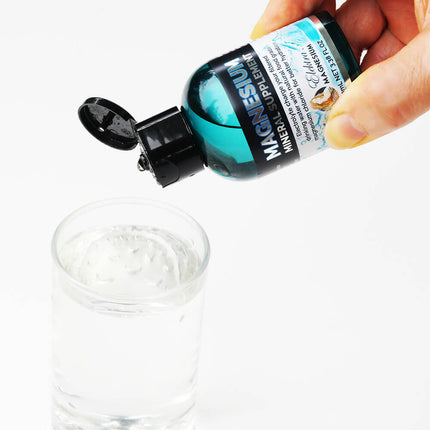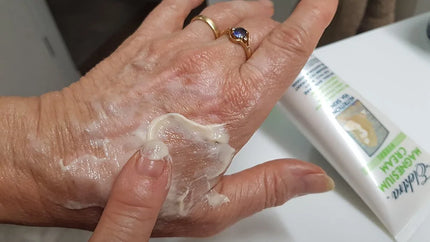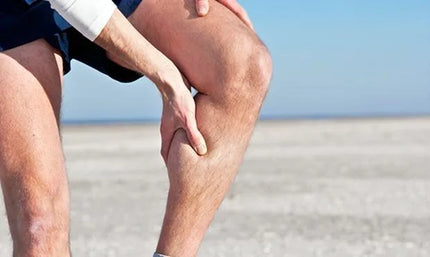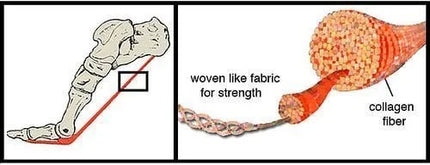Tax included and shipping calculated at checkout

There are many different circumstances where we can experience excessive water retention and feel bloated around the middle or plagued with fat swollen ankles. It is also referred to as fluid retention or oedema. This can happen with pregnancy – especially in the latter part where the baby is bigger and contributing more waste to mum’s elimination system.
We can also swell up with water retention if exposed to toxic chemicals or the wrong medications, if we have a diet of processed refined junk foods, are an alcoholic, don’t get enough exercise, or have some kind of injury, congenital or genetic problem with our detoxification and elimination system.

Some people have digestive disorders (including low stomach acid or dysfunctional gut microbiome) which can make the digestive system slow and sluggish, creating a backlog in the waste disposal system. This can also be associated with a problem in sulphur conversion to sulphate (which helps to break down wastes for removal). And some have problems with the working of the liver and/or kidneys – our major detoxification and filtering organs.

People with cardiovascular issues or congestive heart failure have problems with blood circulation so that their kidneys may not get enough blood supply to do their job properly. If the blood filtering process is sluggish the pH may slip to acidic levels. This makes blood somewhat thicker with platelet stickiness, and also attracts pathogens that seek to feed on metabolic waste products, causing inflammatory conditions. In this case inflammation can occur and spread commonly in the urinary tract, bladder and kidneys.
Kidney (renal) disease can also cause magnesium deficiency as the tubules become stiffer with ageing and don’t recycle magnesium as well as they used to. If your kidneys lose too many alkalising minerals, it gets harder to control pH balance and the acids take over.
What do all these circumstances have in common? They create water retention, which is a response to the inability to filter, process and remove wastes properly. And why does the accumulation of waste products (or overexposure to toxins) make the body build up fluids in the extracellular tissues? It’s because the waste accumulation causes a drop in pH to acidic levels, and the body seeks to rebalance itself via dilution with water.
Kidneys are responsible for water and electrolyte balance in the body

Did you know your kidneys are second only to your liver when it comes to detoxification within the body? Your kidneys are responsible for filtering your blood a remarkable 60 times a day.
The kidneys extract soluble wastes from the bloodstream, as well as excess water, sugars, and a variety of other compounds. Some electrolytes (mineral salts) are recycled and some are expelled, depending on what is needed to be retained in the body for electrolyte balance.
Sometimes too much magnesium is lost via urine and not recycled, usually due to excessive stresses. If this becomes chronic it leads to magnesium deficiency and electrolyte imbalance. When magnesium levels drop too far it affects the other electrolytes because magnesium controls how calcium works in the body, and it helps to keep potassium inside cells via its effect on membrane charge. Magnesium also competes with sodium.

Magnesium deficiency not only affects pH, electrolyte balance and mitochondrial energy metabolism, but it also increases dehydration, making us feel sluggish, fatigued and lacking concentration and focus. And let’s not forget the muscle cramping, aches and stiffness.
It may seem like a contradiction that you can have water retention, and at the same time get muscle cramps. This is because the body is in drought and rationing water. The muscle fibres need a lot of water to expand and relax, but that water is being redirected to other extra cellular spaces to dilute the toxic accumulation and acidosis. Muscles also need more magnesium to control the calcium involved in the muscle contraction. The way to alleviate this dilemma is to add more water and magnesium into your body.
Dehydration and a clogged filter: Basically, it's a toxic problem
About 91-96% of urine consists of water. The remainder is mainly made up of mineral salts, urea, organic compounds including proteins, hormones and other waste products, as well as organic ammonium salts. Urine flows from the kidneys through the ureter, bladder, and finally the urethra before passing from the body.
The average urine production in adult humans is around 1.4 L of urine per person per day with a normal range of 0.6 to 2.6 L per person per day, produced in around 6 to 8 urinations per day depending on state of hydration, activity level, environmental factors, weight, and the individual's health.
If you are well hydrated and the kidneys are working well your urine appears as a light lemon colour. However, if you are getting dehydrated the colour of the urine becomes a darker yellowy-orange colour and smells stronger. If you take a big long drink of mineral water to recover and rehydrate, your urine should return to normal colour. Just remember to drink more regularly to avoid this circumstance.

Problems with metabolism, waste elimination and filtering, combined with dehydration, can lead to worsening kidney health with symptoms of water retention. If cell pH starts to drop too low into the acidic range due to slow or inefficient detoxing, the body moves into a water-rationing mode. It will seek to dilute itself with more water by restricting water loss via urine. See Dr Batmanghelidj’s video about his research, “The Body’s Many Cries for Water.”
To do this the brain sends signals to the kidneys to hold back more sodium. As a result, the extra sodium attracts more water in the extracellular spaces around tissue cells, causing puffiness and swelling.
If detoxification improves, and cell hydration and pH can rebalance, the kidneys then let go of the excess sodium (and therefore the excess water), therefore alleviating the water retention issue. This is the reason your doctor may tell you to avoid eating sodium (table) salt if you have a problem with water retention. But you also need to pay attention to the detoxification and waste disposal system.
When the kidneys use sodium levels to ration water and prevent water loss via urine, it changes the balance of electrolytes so that magnesium becomes less effective. If you take on too much sodium (in ratio to magnesium) you can block the action of magnesium and potassium, which are the most dominant electrolytes (together with chloride) inside cells.

Magnesium deficiency is associated with lower cell pH (in the acidic range), which affects cell membrane charge, as well as mitochondrial metabolism. This electrical charge is what literally holds us together at an atomic level. Energy metabolism drops in line with a drop in pH, because acidic conditions rob us of both oxygen and adequate use of magnesium. The optimal pH of cells is in the range 7 (neutral) to 7.4 for best metabolism and enzyme function.
Many people find relief from acidic conditions by taking half a teaspoon of food grade bicarbonate of soda in a glass of water once or twice a day on an empty stomach. This can help to counteract acidosis due to the bicarbonate, and we do need some sodium (soda) in that electrolyte balance.
We need the magnesium-dependent ATP (adenosine triphosphate), the body’s bio-electrical currency, to drive enzyme activity and detoxification. If metabolism drops, as in acidosis and magnesium deficiency, you get dehydration and toxic waste build-up. It can become a downward spiral.
All our electrolytes are essential. You can’t do without any of them, but it’s their balance and relationship that is most important. Researchers are finding that magnesium, out of all the electrolytes, has the biggest influence on electrolyte balance and therefore kidney function.
Taking good care of your kidneys

Drink water: To ensure the optimal health of our kidneys and avoid water retention symptoms, drink more water. 3 litres per 24 hours is recommended for the average adult. The majority of the body is made up of water. We are like a walking fish tank and so have to keep our waters clean and alkaline for best metabolism and organ function. How can you rinse and flush if you don’t have enough water?
Even if your kidneys are in good condition, and you allow yourself to become dehydrated too often, you can cause cell damage due to acidification from toxic wastes piling up and not being flushed away. Disease starts with inefficient garbage disposal combined with lack of nutritional supports.
Drinking water should be properly filtered to avoid chemicals and heavy metals that may be in tap water, and then recharged with electrolytes like magnesium chloride salts. This should mimic a natural spring water. See Elektra Magnesium Mineral Supplement for Drinking Water.
Remember that only water does what water does: You cannot equate all liquids with supplying the water you need for detoxing. Juices and beverages are liquid foods that require digestion and processing, and they put a demand on the body to eliminate more wastes. Mineral water however goes straight to where it is needed as soon as you drink it. It supplies hydration and electrical charge.

Avoid sugar, alcohol and processed carbohydrates: A big contributor to acidity and dehydration is the consumption of sugars, processed carbohydrates and/or alcohol. They produce a high level of acidic by-products and free radicals, which cause cell damage and dehydration. To lighten the load on the kidneys you need to avoid acidifying foods, and to eat more of fresh organic vegetables with high antioxidant value. Antioxidants help to buffer the excess acids, which helps to bring pH back to normal. Good health is all about maintaining optimal pH balance in cells, which relies on electrolyte and water balance - a huge job for the kidneys.

Exercise, sweating, saunas and massage: We need to exercise regularly to push the lymph circulation (another waste disposal system), take onboard more oxygen, and perspire out more wastes via skin. Exercise also makes you want to drink more water, which then flushes out more wastes via kidneys or helps to excrete them via skin. Massage can help move the lymph system, and saunas can also help excrete wastes via skin.
Magnesium: Magnesium is the fourth most abundant mineral in the body. It is essential for over 300 enzymatic biological functions, electrolyte balance and kidney health. Magnesium is essential in blood pressure normalisation, insulin regulation, bone health, vascular health and heart rhythm.
Extra magnesium can help alleviate water retention because it is needed by the kidneys to maintain optimal water and electrolyte mineral balance. Women who have pre-menstrual syndrome or PMS often suffer from water retention due to magnesium deficiency and consequential electrolyte imbalance. When electrolytes are out of balance it can affect hormones, as well as trigger inflammation and pain.
Several studies have found a connection between magnesium deficiency and inflammatory responses, and that magnesium has an anti-inflammatory effect in the body. A recent study review concluded, “magnesium deficiency is a significant contributor to chronic low-grade inflammation that is a risk factor for a variety of pathological conditions such as cardiovascular disease, hypertension, and diabetes.”
Magnesium is a great supporter of the kidneys due to its capacity to control free calcium in the body. If you have plenty of available magnesium you are least likely to develop calcium crystal deposits which form kidney stones. A study also found that vitamin D supplements can lead to increased risk of kidney stones. However, as magnesium can control calcium balance, if you are taking extra vitamin D supplements, make sure to also increase your magnesium supplementation.
Magnesium also helps to keep potassium inside cells via cell membrane charge, which preserves electrolyte balance (see study here). This is important for cardiovascular health.

Magnesium is optimally absorbed via our skin in the form of dissolved magnesium chloride because it is the most bioavailable form and requires no further digestion via stomach. If you are a high-end magnesium user, then this is a great way to get what you need.
Adding magnesium chloride to your drinking water makes the water more hydrating for cells. In other words, it makes the water work better. However, relying only on drinking water may not supply all the magnesium you need.
Transdermal magnesium can supply higher doses (without diarrhea). You can’t overdose this way, as the skin selectively absorbs what it needs from the epidermis. Use however much you like until you feel better – then that’s the right amount. Some people can need to apply as much as 1,000mg a day. Regular daily use can help the body to build up magnesium reserves over time, which means you can have a good backup supply stored up.
Plant foods to help your body detox and relieve water retention symptoms
Certain herbs and foods can act as natural diuretics to help the kidneys flush away toxins in the case of mild water retention symptoms, such as during hormonal cycles or long airplane flights. The hormone spikes cause extra wastes to be dumped, and the long flights mean the lymph system can get sluggish (unless you walk up and down the aisles a lot and drink enough water).
Caffeine in coffee and tea can act as a diuretic because it binds to the adenosine receptors. This prevents your kidneys from taking up sodium and enhances water and sodium elimination (see study here). However, there are two sides to this coin.
Caffeine (around 300 mg) may increase urination, but this can also lead to too much water loss and dehydration. If you drink coffee, it’s best to keep consumption moderate (not more than two cups a day), and drink extra water to compensate for the diuretic effect. You don’t want to rob your body of the water it so desperately craves. Remember that it’s the waste products that mostly cause the water retention problem, and the extra water is just there to alleviate the toxic build-up.

Natural organic coffee also works as an antioxidant and can have some beneficial effects, as it supports the liver detox process. This is why it sometimes helps to get rid of a headache (if the reason for the headache is a toxic one). So, a little bit can be good, but too much is bad. Too much can overstimulate the adrenals to produce more adrenalin which makes us jumpy and hyper-excited. It can also push blood pressure up too far – which can then give you a headache. Balance is the key.
Coffee, black tea and green teas had diuretic effects in two studies on rats. Green tea, with its polyphenol and antioxidant benefits, boosted the effects of hydrochlorothiazide and reduced potassium loss (see this study here). Green tea could be a more moderate option to coffee, especially if you’re prone to anxiety, as it is less stimulatory for the adrenals. Green tea contains EGCG, which can counteract the stimulant, anxiety-provoking effect of caffeine on the brain (see study here).
Herbs and spices to use in teas and cooking that support kidneys

Milk Thistle: Milk thistle has also been used traditionally to treat liver, gallbladder and kidney issues because it supports the body’s detoxification. It has anti-inflammatory and anti-fibrotic effects.
Dandelion: Traditional Chinese and Ayurvedic medicine cherish dandelion for its diuretic benefits, which probably stem from its potassium-rich leaves. Dandelion leaf extract (8 mL, 3x/day) enhanced urination in a clinical trial on 17 people (see study here). In rats, dandelion leaf extract had a diuretic effect comparable to a strong diuretic drug (furosemide) and prevented kidney stones. The dried root can be used in tea, while tinctures and extracts are also widely available.
Black Cumin: Known also as Nigella sativa, this black seed has been used to relieve a wide range of diseases for millennia, including high blood pressure (see study here). Black Cumin also boosted urine production and cut the risk of developing kidney stones in studies on rats. You can buy black cumin oil or simply use the crushed seeds.
Garlic: Medicinal uses of garlic are as old as mankind. It offers a range of potential benefits for the heart and blood vessels (see study here). Garlic extract acted as a diuretic in many animal studies. But keep in mind that raw, freshly chopped garlic is the most potent. Once chopped, its beneficial components quickly evaporate, while cooking deactivates them. If you’re not a big fan of garlic’s taste, you can buy extracts or garlic oil.
Roselle: Roselle tea – also known as Hibiscus sabdariffa - is an age-old traditional remedy for hypertension or high blood pressure. Roselle can help with kidney stones as one clinical trial on 18 men found roselle tea increased uric acid excretion, cutting the risk of kidney stones and gout (see study here). Plus, the roselle extract prevented the build-up of stone-causing minerals (such as calcium and oxalate) in rat kidneys. Roselle also contains quercetin which contributes to blood vessel relaxation. You can buy supplements of Roselle extract but you can also just drink roselle tea.
Horsetail: This herb has a long history of use as a natural diuretic. In a clinical trial on 25 healthy people, the extract of the Andean horsetail (0.75 g/day for 2 days) had diuretic effects. It slightly enhanced sodium, potassium, and chloride flushing as well. Horsetail extracts are available or you can drink the tea for milder benefits. A word of caution though - people with HIV should avoid horsetail as it has been shown to block the effects of anti-HIV drug combinations.
Pomegranate: Pomegranate is loaded with antioxidants which protect the urinary tract from infections and kidney stones. In a clinical trial on 30 people, pomegranate extract reduced calcium oxalate build-up in urine, cutting the risk of kidney stones.
Parsley: Parsley is a well-known diuretic in folk medicine. Although we still lack clinical trials, parsley extract enhanced urination in three studies on rats. It also alkalised the urine and prevented kidney stones (see study here)
Raspberry: Raspberry is chock full of antioxidants which support your kidney health and combat different chronic diseases. In animal studies, raspberry extract increased urine production and helped prevent kidney stones (see study here).
Juniper: Herbalists praise juniper for its antimicrobial and detox properties but it also has a diuretic effect and this attracted researchers for decades. A 10% infusion (tea) of juniper berries enhanced urination in a study on rats (see study here).
Oregano: This spice has many potential benefits in traditional medicine, including water retention and kidney stone treatment. In rats, oregano extract prevented kidney stone formation. You can buy oregano supplements or oregano essential oil if you want to use it for your health.
Caraway: Traditional uses of caraway include high blood pressure, water retention, and digestive disorders. In rats, caraway extract was as effective as a diuretic drug (furosemide) at boosting urination (see study here).
Hawthorn: Water retention can be a major problem for patients with heart disease. Hawthorn has been shown to strengthen the heart muscle and stimulate circulation which in turn, enables the removal of excess water (see study here).
Kidney support foods: As well as the spices and herbs listed above, raspberry, pomegranate, garlic, fennel, cranberry, mustard greens and melons are diuretic foods which can help alkalise cells and remove excess water. Potassium-rich foods such as beans, lentils, squash, beets, bananas and potatoes – can also contribute because potassium counteracts water retention caused by high sodium or salt intake. But remember that you also need the extra magnesium to help conserve the potassium and keep it in the cells.
Warning: Seek the advice of a medical practitioner if your symptoms persist or become chronic. Water retention can be caused by some serious underlying health conditions such as kidney and heart diseases, high blood pressure, liver failure or rapid weight loss.







